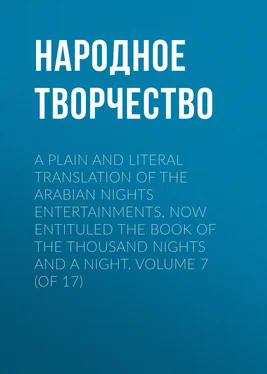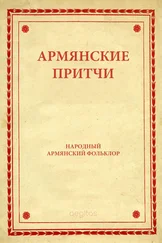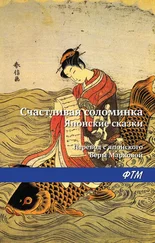Now when it was the Six Hundred and Eighty-third Night,
She pursued, It hath reached me, O auspicious King, that men also tell a tale anent
KHUZAYMAH BIN BISHR AND IKRIMAH AL-FAYYAZ. 99 99 i.e. “The overflowing,” with benefits; on account of his generosity.
There lived once, in the days of the Caliph Sulayman bin Abd al-Malik 100 100 The seventh Ommiade A. H. 96–99 (715–719). He died of his fine appetite after eating at a sitting a lamb, six fowls, seventy pomegranates, and 11¼ lbs. of currants. He was also proud of his youth and beauty and was wont to say, “Mohammed was the Apostle and Abu Bakr witness to the Truth; Omar the Discriminator and Othman the Bashful, Mu’awiyah the Mild and Yazid the Patient; Abd al-Malik the Administrator and Walid the Tyrant; but I am the Young King!”
a man of the Banu Asad, by name Khuzaymah bin Bishr, who was famed for bounty and abundant wealth and excellence and righteous dealing with his brethren. He continued thus till times grew strait with him and he became in need of the aid of those Moslem brethren on whom he had lavished favour and kindness. So they succoured him a while and then grew weary of him, which when he saw, he went in to his wife who was the daughter of his father’s brother, and said to her, “O my cousin, I find a change in my brethren; wherefore I am resolved to keep my house till death come to me.” So he shut his door and abode in his home, living on that which he had by him, till it was spent and he knew not what to do. Now Ikrimah al-Raba’í, surnamed Al-Fayyáz, governor of Mesopotamia, 101 101 Arab. Al-Jazírah, “the Island;” name of the region and the capital.
had known him, and one day, as he sat in his audience-chamber, mention was made of Khuzaymah, whereupon quoth Ikrimah, “How is it with him?” And quoth they, “He is in a plight past telling, and hath shut his door and keepeth the house.” Ikrimah rejoined, “This cometh but of his excessive generosity: but how is it that Khuzaymah bin Bishr findeth nor comforter nor requiter?” And they replied, “He hath found naught of this.” So when it was night, Ikrimah took four thousand dinars and laid them in one purse; then, bidding saddle his beast, he mounted and rode privily to Khuzaymah’s house, attended only by one of his pages, carrying the money. When he came to the door, he alighted and taking the purse from the page made him withdraw afar off; after which he went up to the door and knocked. Khuzaymah came out to him, and he gave him the purse, saying, “Better thy case herewith.” He took it and finding it heavy put it from his hand and laying hold of the bridle of Ikrimah’s horse, asked, “Who art thou? My soul be thy ransom!” Answered Ikrimah, “O man I come not to thee at a time like this desiring that thou shouldst know me.” Khuzaymah rejoined, “I will not let thee go till thou make thyself known to me,” whereupon Ikrimah said “I am hight Jábir Atharát al-Kirám.” 102 102 i.e. “Repairer of the Slips of the Generous,” an evasive reply, which of course did not deceive the questioner.
Конец ознакомительного фрагмента.
Текст предоставлен ООО «ЛитРес».
Прочитайте эту книгу целиком, купив полную легальную версию на ЛитРес.
Безопасно оплатить книгу можно банковской картой Visa, MasterCard, Maestro, со счета мобильного телефона, с платежного терминала, в салоне МТС или Связной, через PayPal, WebMoney, Яндекс.Деньги, QIWI Кошелек, бонусными картами или другим удобным Вам способом.
Mayyáfárikín, whose adjective for shortness is “Fárikí”: the place is often mentioned in the Nights as the then capital of Diyár Bakr, thirty parasangs from Násibín, the classical Nisibis, between the upper Euphrates and Tigris.
This proportion is singular to moderns but characterised Arab and more especially Turcoman armies.
Such is the bathos caused by the Saja’-assonance: in the music of the Arabic it contrasts strangely with the baldness of translation. The same is the case with the Koran, beautiful in the original and miserably dull in European languages; it is like the glorious style of the “Anglican Version” by the side of its bastard brothers in Hindostani or Marathi; one of these marvels of stupidity translating the “Lamb of God” by “God’s little goat.”
This incident is taken from the Life of Mohammed who, in the “Year of Missions” (A.H. 7) sent letters to foreign potentates bidding them embrace Al-Islam; and, his seal being in three lines, Mohammed | Apostle | of Allah, Khusrau Parwíz (= the Charming) was offended because his name was placed below Mohammed’s. So he tore the letter in pieces adding, says Firdausi, these words:—
This “Taklíd” must not be translated “girt on the sword.” The Arab carries his weapon by a baldrick or bandoleer passed over his right shoulder. In modern days the “Majdal” over the left shoulder supports on the right hip a line of Tatárif or brass cylinders for cartridges: the other cross-belt (Al-Masdar) bears on the left side the Kharízah or bullet-pouch of hide; and the Hizám or waist-belt holds the dagger and extra cartridges. (Pilgrimage iii. 90.)
Arab. “Bab,” which may mean door or gate. The plural form (Abwáb) occurs in the next line, meaning that he displayed all manner of martial prowess.
Arab. “Farrásh” (also used in Persian), a man of general utility who pitches tents, sweeps the floors, administers floggings, etc. etc. (Pilgrimage iii. 90).
i.e. the slogan-cry of “Allaho Akbar,” which M. C. Barbier de Meynard compares with the Christian “Te Deum.”
The Anglo-Indian term for the Moslem rite of killing animals for food. (Pilgrimage i. 377.)
Arab “tawílan jiddan”—a hideous Cairenism in these days; but formerly used by Al-mas’údí and other good writers.
Arab “’Ajwah,” enucleated dates pressed together into a solid mass so as to be sliced with a knife like cold pudding. The allusion is to the dough-idols of the Hanífah tribe, whose eating their gods made the saturnine Caliph Omar laugh.
Mr. Payne writes “Julned.” In a fancy name we must not look for grammar; but a quiescent lám ( l ) followed by nún ( n ) is unknown to Arabic while we find sundry cases of “lan” (fath’d lám and nún), and Jalandah means noxious or injurious. In Oman also there was a dynasty called Julándah, for which see Mr. Badger xiii:. and passim .
Doubtless for Jawán-mard—un giovane, a brave. (See vol. iv., p. ).
Mr. Payne transposes the distichs, making the last first. I have followed the Arabic order finding it in the Mac. and Bul. Edits. (ii. 129).
Al-Irak like Al-Yaman may lose the article in verse.
Arab. “Ka’ka’at”: hence Jabal Ka’ka’án, the higher levels in Meccah, of old inhabited by the Jurhamites and so called from their clashing and jangling arms; whilst the Amalekites dwelt in the lower grounds called Jiyád from their generous steeds (Pilgrimage iii. 191).
Читать дальше












